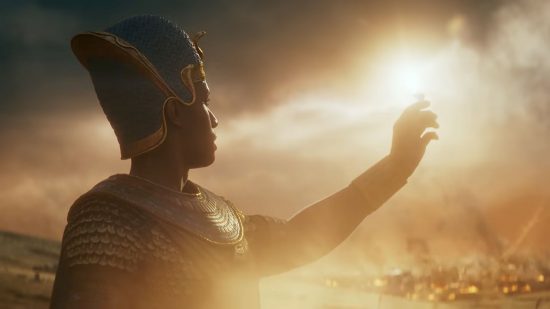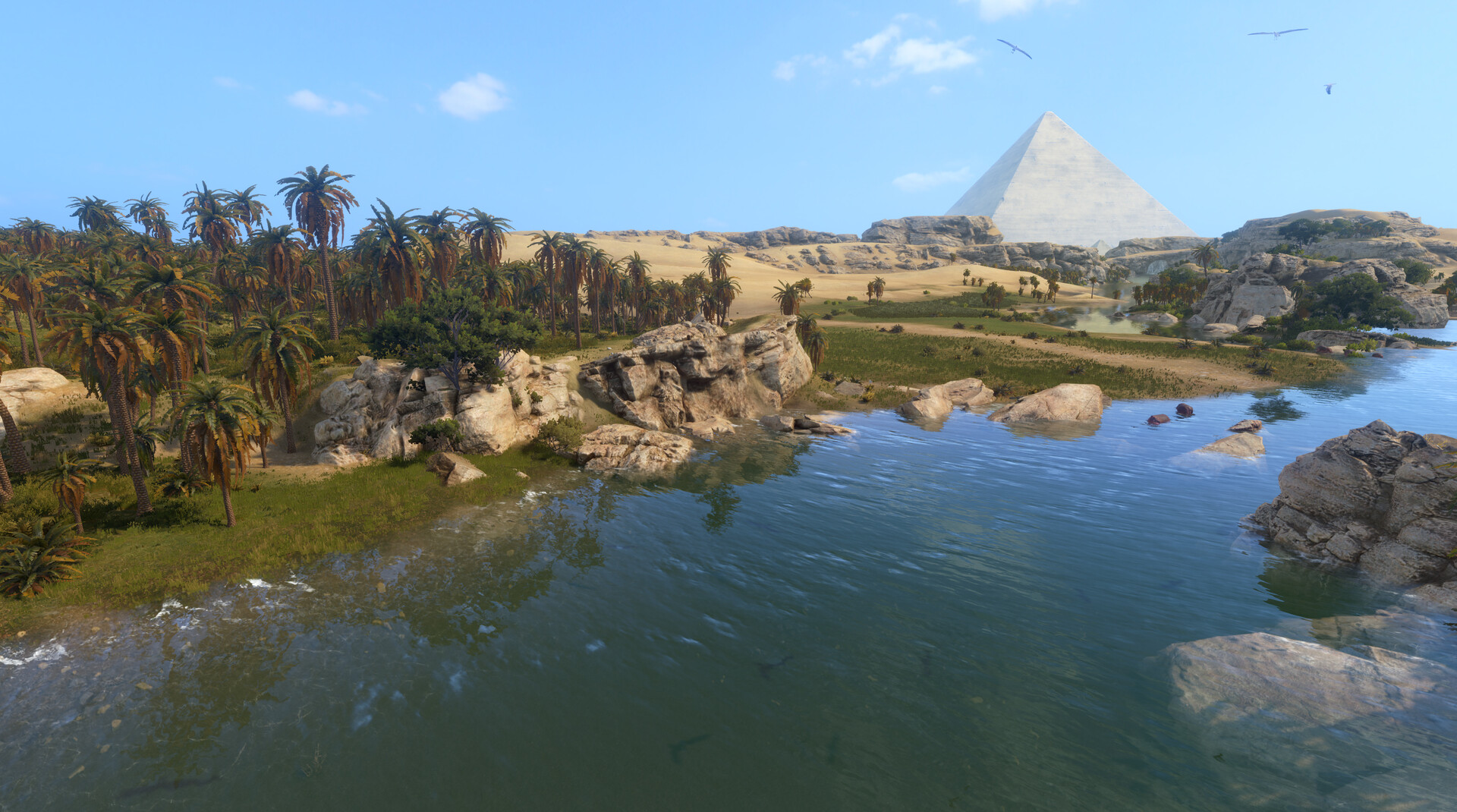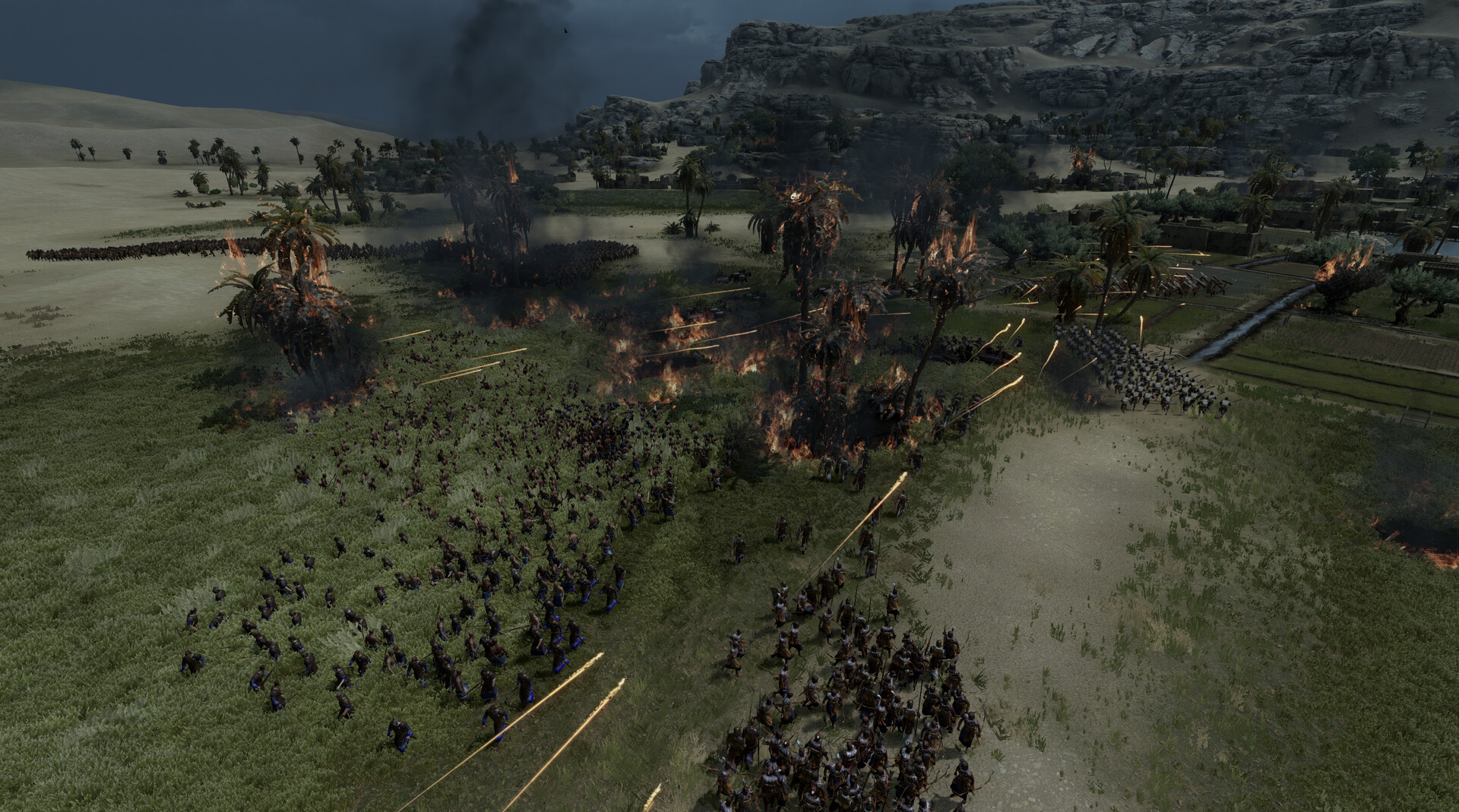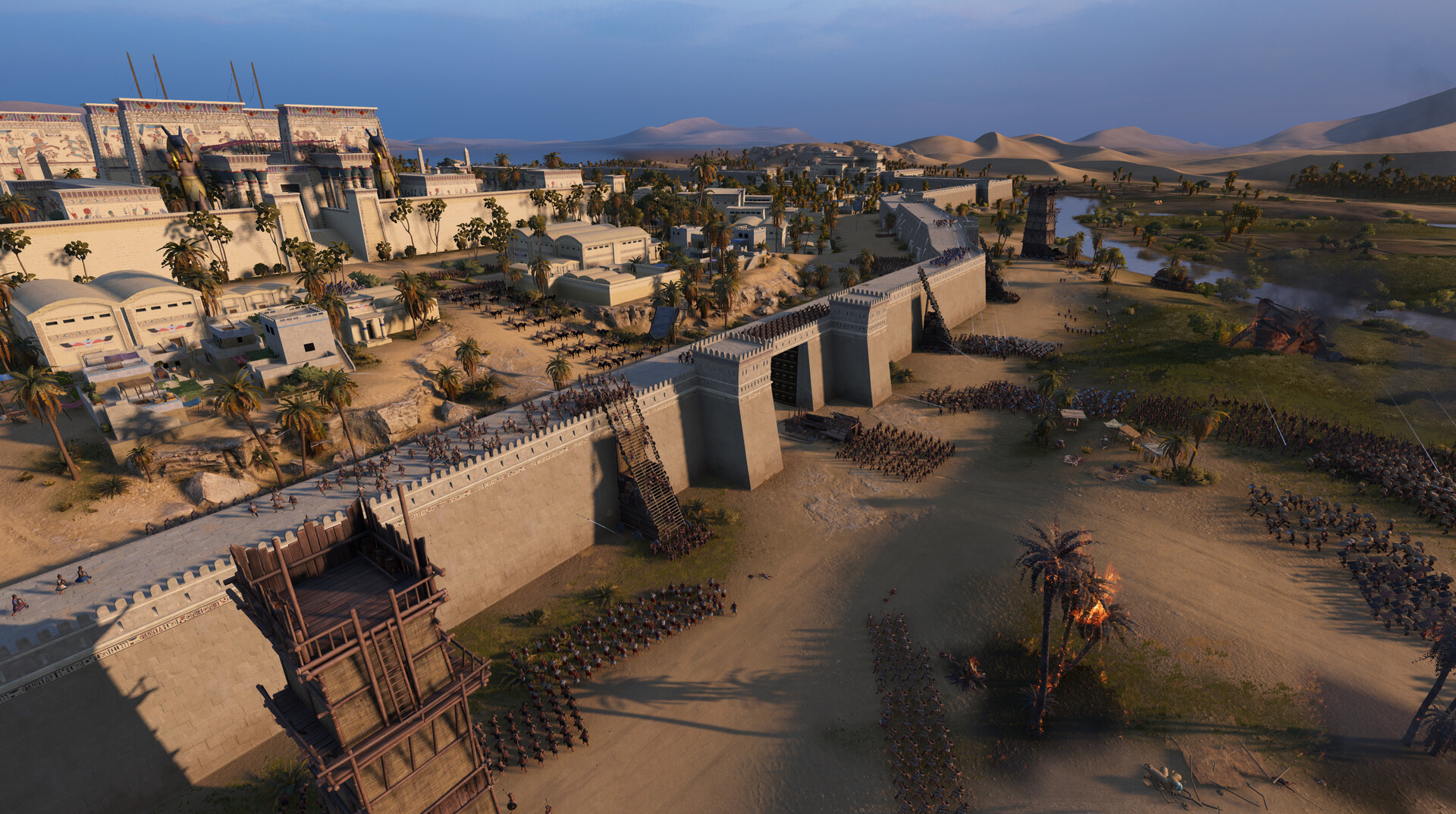Historical Total War is in an odd place. Three Kingdoms was far more fantastical than its predecessors, with its superhuman characters and their Wuxia-style duels, and its DLC plan met a sudden and mysterious end despite it being the fastest-selling Total War game at launch. Set aside three ‘Saga’ games (though Attila wasn’t officially labeled as such), and a purist might argue we haven’t had a ‘proper’ historical Total War since Rome II. And now here’s Total War: Pharaoh, a new game set in a new historical period, and conspicuously lacking the ‘Saga’ designation – though it would seem to fit quite well. What kind of game does it need to be to thrive in a post-Warhammer world?
I’m going to take it as read that recent quality-of-life features are staying: things like the more intricate diplomacy system from Three Kingdoms and especially the multi-resource economy from Troy, which is nearly contemporaneous with the events of Total War: Pharaoh. I called this latter feature “the best change Total War has made to its campaign in ages” in our A Total War Saga: Troy review, and I’m all but certain it’ll return. Pharaoh and Troy share a developer in Creative Assembly’s new Sofia studio, and the Pharaoh website talks of “an ever-evolving economy”, hinting your economy may even mutate during a campaign. Can’t wait.

I’m more nervous about the newer features, especially the natural disasters mentioned in the Pharaoh FAQ. ‘Natural disasters’ in strategy games are, to me, what water levels in 3D platformers apparently are to everyone else: my quirkily specific gaming nightmare fuel. In fairness, previous Total War games have made something strategically usable out of natural phenomena like disease, so I’m keeping various digits crossed. But because Act-of-God events like hurricanes and earthquakes are arbitrary in real life, they’re usually arbitrary in games, meaning they can’t be anticipated or strategized around. All you can do is hope they don’t happen, and respond as best you can when they do, feeling annoyed.
I don’t think I’ve ever encountered a satisfying game system for these kinds of natural disasters, nor have I had a discussion with a developer or an apologist fan in which I was persuaded one could be made. Someone criticized my Civ VI: Gathering Storm review, saying that repairing the damage from a hurricane was “problem solving”, which is the essence of strategy gaming. Two issues: it’s not problem solving, it’s rote reactive cleanup, and the essence of strategy games is strategy.
Pharaoh also needs its own answer to the limitations of Bronze Age warfare. In advance of Troy, CA Sofia emphasized that cavalry was a rare sight on the battlefields of this time, and the Pharaoh website suggests its battlefields will again be dominated by infantry (I would expect more chariots, given the Egyptians’ and Hittites’ proficiency with them, though their use was on the decline in the late Bronze Age as the Sea Peoples forced a change in tactics). It’s likely, then, that a system akin to Troy’s three infantry weight classes will return, but with little sign of fantasy in the game so far, its ‘myth’ units probably won’t. The thing is, though, those units added a lot of flair to armies that were otherwise just a bunch of dudes in different configurations of arms and armor.
Purists may scoff and feel that an authentic recreation of the tactics of any given period of warfare ought to be interesting enough in itself. I get that. But I think CA now regards a soupçon of theatricality as an essential ingredient in the battle mix, and Pharaoh’s website contains plenty of evidence to support that. There are more one-on-one character duels, talk of “intense changes in weather” that will affect the outcome of battles, and the ability to utilize the “threat of fire”. In lieu of semi-historical interpretations of harpies and centaurs, it seems this is where Pharaoh’s drama will come from.
I’m more relaxed about arbitrary events like shifting weather in a battle context than a strategic one. They’re more likely to affect all participants equally; more can be done to adapt as events are unfolding, say by moving troops, than is possible on a turn-by-turn basis; and though it will still really suck to lose a knife-edge high-stakes battle because of a sudden ill-placed rain shower, in most situations the consequences feel more manageable than taking a permanent hit to your long-term empire building. I also assume we’ll be given our own tools to deploy fire to our advantage, which makes it a controllable tactical tool rather than something entirely arbitrary.
Finally, I’d appreciate a clearer understanding of exactly what to expect from Pharaoh in the long term. Once Total War’s fastest-selling entry, CA ended DLC support for Three Kingdoms with whiplash-inducing suddenness and the bizarre promise of some kind of reboot game – about which we’ve heard nothing – and I’m still not really sure why. It’s also a little odd that Pharaoh isn’t being dubbed a Total War ‘Saga’, the label that developer Creative Assembly invented for historical games that focussed on a single flashpoint, as Pharaoh is on the 50-year Bronze Age collapse. Perhaps CA has simply decided this is what historical Total War is now and to drop the Saga label, but we know there are at least two other Total War teams working on other projects (the Three Kingdoms team and the core Warhammer III team). These could include the supposed Three Kingdoms reboot, the persistently rumored Medieval III or Empire II, or entirely unexpected historical or fantasy projects. So it’d be nice to know where we stand.
Many of these questions will soon be answered as Pharaoh’s gameplay reveal and further marketing spins up, while others may linger. Still, I remain quietly confident for Pharaoh; taken on its own merits, Troy was a really solid entry in the Total War franchise, and I often feel like its designation as a ‘Saga’ title and concurrence with both Three Kingdoms and Warhammer II diminished it. Perhaps CA has ditched the ‘Saga’ label to create a bigger spotlight for Pharaoh. If so, it’s no more than Sofia deserves.



